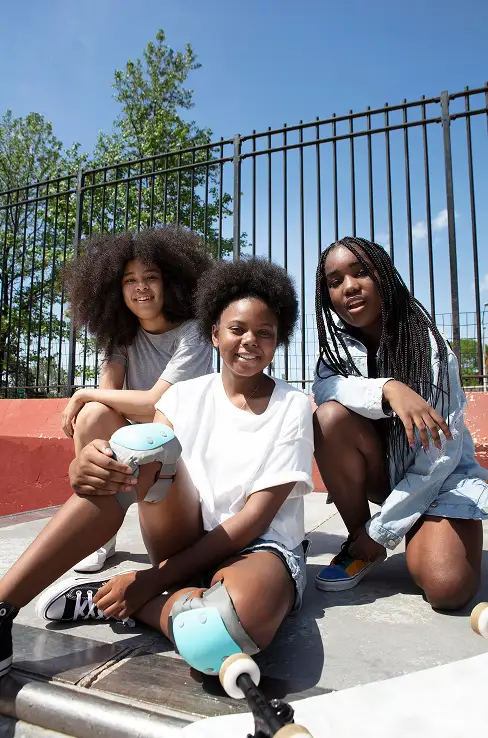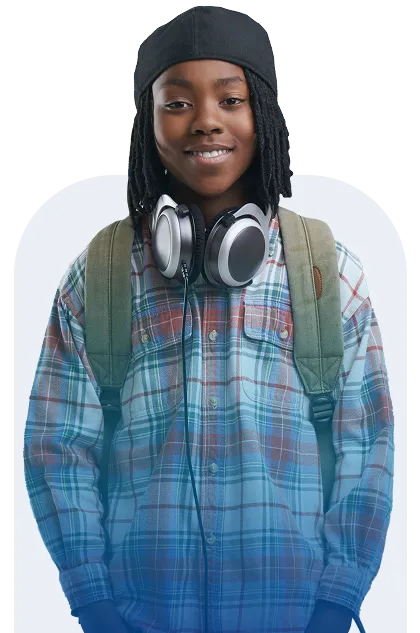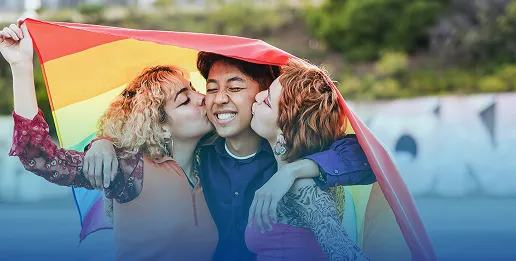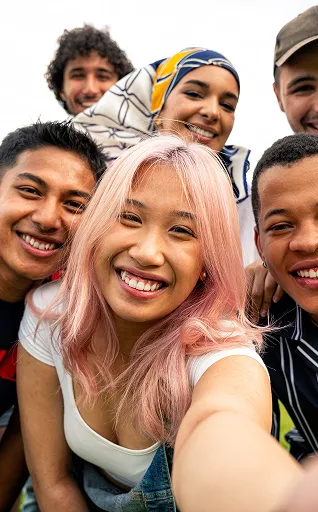
Anxiety is a mental health condition that triggers the body’s fight-or-flight response, flooding the brain with stress hormones that cause symptoms like excessive worry, physical tension, and difficulty concentrating.
Without proper support, ongoing anxiety can interfere with daily life, school, and relationships, often co-occurring with depression or other mental health challenges.
Anxiety often stems from a combination of genetic, environmental, and social factors. Experiences like childhood trauma (e.g., neglect or abuse), bullying, academic pressure, or family conflict can increase the risk.
Symptoms can manifest physically, with many teens experiencing chronic stomachaches or migraines. Untreated anxiety can lead to isolation, depression, substance abuse, and a decreased quality of life.
Long-Term Risks of Untreated Anxiety:
Anxiety is the most commonly reported mental health challenge among teens, affecting over 30% of youth nationwide. There are several types of anxiety disorders, each with distinct symptoms and triggers.
Treatment plans are personalized accordingly, for example, focusing on social skills and confidence for teens with social anxiety, or applying targeted exposure therapies for those with specific phobias.
At Lotus Behavioral Health, we understand that treating anxiety in teens means addressing their physical, social, and emotional needs across all levels of care—from inpatient to outpatient.
We are dedicated to ending the mental health crisis in teens and helping youth build the skills to overcome anxiety. Throughout treatment, your teen will have access to a comprehensive range of supportive services, including:

%20(1).webp)

Our safe and structured 5 to 12-week residential program offers 24/7 care, a blend of evidence-based therapies, and medication management to treat severe anxiety, suicidal ideation, panic disorders, and trauma.
Explore Program

This intensive 7-day program builds on the skills learned in residential settings. Our PHP is designed to meet the unique needs of your family, helping your teen smoothly transition out of inpatient into a lower level of care.
Explore Program

Our IOP provides a flexible treatment approach, meeting 3 to 4 days a week, allowing teens to live at home while still receiving intense treatment. IOP enables teens to continue attending school, participate in extracurriculars, and spend time with friends and family.
Explore Program

Virtual and in-person outpatient services allow teens and their families to participate in treatment while remaining at home and continuing their day-to-day activities. This is an ideal option for teens with mild anxiety who need support developing coping skills and managing triggers.
Explore Program
CBT is one of the most effective treatments for teen anxiety, helping them identify and challenge negative thought patterns that fuel fear, worry, or avoidance. Through guided sessions, therapists teach practical coping skills such as reframing anxious thoughts, managing triggers, and building problem-solving confidence. A comprehensive mental health evaluation ensures each teen’s treatment plan addresses underlying causes, such as trauma or co-occurring conditions.
DBT is especially beneficial for teens who experience intense emotions or difficulty regulating anxiety. By teaching mindfulness, distress tolerance, and emotional regulation skills, DBT helps teens respond to stress in healthy ways, rather than reacting impulsively or withdrawing. Family involvement is central to DBT’s success. When parents and caregivers learn these same skills, they can better support their teens’ progress and rebuild trust through open, compassionate communication.
Anxiety often affects the entire family system. Family therapy provides a safe environment for parents and teens to address conflicts, understand each other’s experiences, and strengthen relationships. Through structured sessions, families learn communication techniques, boundary setting, and supportive response strategies that reduce household stress and promote healing. When families actively engage in their teens’ anxiety treatment, outcomes improve significantly, leading to a stronger foundation for recovery and ongoing mental health.
Creative arts and recreational therapies, such as art, music, movement, outdoor activities, and animal-assisted therapy, offer alternative outlets for processing emotions and building confidence. These therapeutic experiences help reduce stress, encourage self-expression, and promote emotional regulation in a non-threatening, enjoyable way. In our culturally sensitive and inclusive environment, teens are also supported in exploring their identity, values, and sense of belonging.


En Lotus, sabemos que la sanación de la familia no depende solo del idioma. Al eliminar las barreras, apoyamos a los padres para que formen parte activa del proceso de sanación de sus adolescentes. Miembros de nuestro equipo hablan español en todos los departamentos y las sesiones de terapia familiar se pueden realizar completamente en español para garantizar que los padres se sientan comprendidos e incluidos. ¡Estamos aquí para tu familia!
We are committed to providing an affirming and inclusive space where LGBTQ+ teens feel respected and free to be themselves. Our culturally responsive clinicians are trained to address the unique challenges faced by LGBTQ+ youth, delivering care that celebrates diversity and fosters self-acceptance. We champion safety, understanding, and empowerment for all identities within our community.

Most insurance plans cover some or all levels of care, including inpatient, outpatient, intensive outpatient (IOP), and partial hospitalization (PHP). Our team helps verify benefits and works directly with your provider to maximize coverage for your teen’s treatment.
We offer evidence-based therapies, including CBT, DBT, family therapy, and mindfulness-based interventions. Teens also benefit from creative arts and recreational therapies that help them manage anxiety through self-expression and emotional regulation.
If appropriate, our psychiatric providers may prescribe medication as part of a comprehensive treatment plan. Medication decisions are always made collaboratively, with family involvement and ongoing monitoring for safety and effectiveness.
Whether your teen struggles with anxiety, other mental health challenges, or co-occurring substance use disorders, Lotus offers a foundation of care, support, and hope for your family. Contact admissions today.
